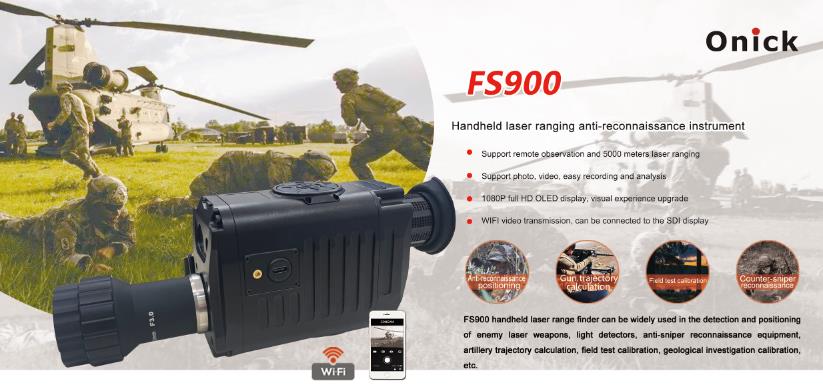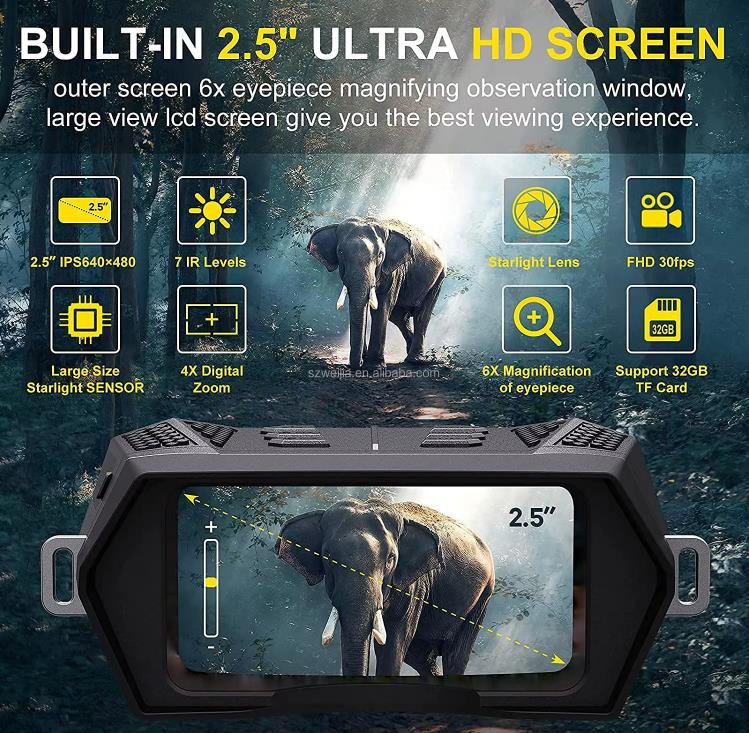The observation distance of hunting night vision goggles depends on many factors, including the type of night vision goggles technology, ambient light conditions, target size and reflectivity. The following is a detailed analysis of the observation distance of hunting night vision goggles:
Observation distance of hunting night vision goggles
Low-light night vision goggles (Image Intensifier):
Observation distance: Usually between 100 meters and 300 meters, depending on the intensity of ambient light.
On a moonlit or starlit night, the observation distance may reach 200-300 meters.
In a dark environment, the observation distance may be shortened to about 100 meters.
Limitations: In a completely dark environment, infrared illuminators are required, but the effective distance of infrared illumination is usually shorter (50-100 meters).
Thermal imaging:
Observation distance: Usually between 200 meters and 1000 meters, depending on the resolution of the thermal imager and the thermal radiation intensity of the target.
High-end thermal imagers can detect targets up to 1,000 meters away, but identifying details of the target (such as animal species) is usually within 200-400 meters.
Advantages: Thermal imagers do not rely on ambient light, can work in complete darkness, and can penetrate smoke, haze and vegetation.
Digital Night Vision:
Observation distance: Usually between 100 meters and 500 meters, depending on the sensitivity of the sensor and the intensity of the infrared illumination.
High-end digital night vision devices can observe up to 500 meters when used with powerful infrared illuminators.
Features: Digital night vision devices usually have video and photo functions, suitable for recording hunting processes.
Factors affecting observation distance
Ambient light:
The observation distance of low-light night vision devices will be farther on a well-lit night.
Target characteristics:
The size, reflectivity and thermal radiation intensity of the target will affect the observation distance. For example, a deer is easier to detect than a rabbit.
Weather conditions:
Fog, rain, snow and other weather conditions will reduce the observation distance of night vision goggles.
Performance of night vision goggles:
Higher generation night vision goggles (such as Gen 2+ or Gen 3) have better sensitivity and resolution, and can observe farther.

Intensity of infrared illuminators:
Powerful infrared illuminators can significantly increase the observation distance of low-light night vision goggles and digital night vision goggles.
Recommended choices for hunting night vision goggles
Short-range hunting (within 100 meters):
Choose entry-level low-light night vision goggles or digital night vision goggles, and match them with infrared illuminators to meet your needs.
Medium-range hunting (100-300 meters):
Choose Gen 2+ or Gen 3 low-light night vision goggles, or mid-range thermal imagers.
Long-range hunting (more than 300 meters):
Choose high-end thermal imagers or high-resolution digital night vision goggles.

Notes
Legality: In some areas, the use of night vision goggles for hunting may be restricted by law, so you need to understand local regulations in advance.
Battery life: Make sure the battery life of the night vision device meets your hunting needs.
Target identification: Although thermal imagers have a long detection distance, they may not be as good as low-light night vision devices in identifying target details.
If you have a specific hunting scenario or budget, we can further recommend a suitable night vision device model!
If you like, you can contact us: service@onick-optics.com

